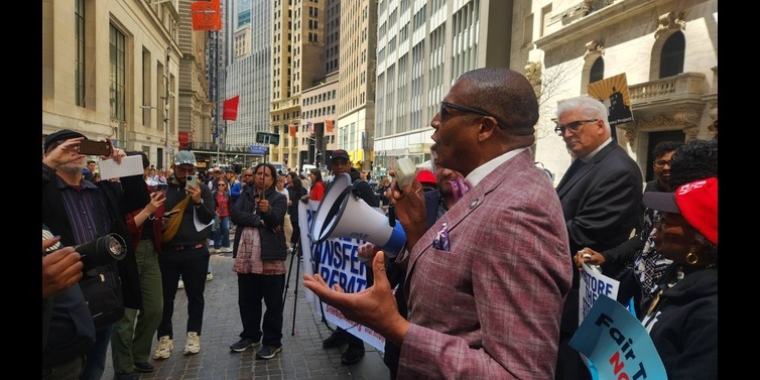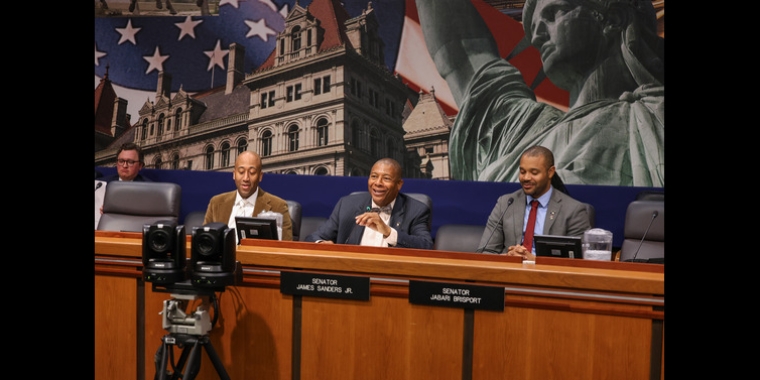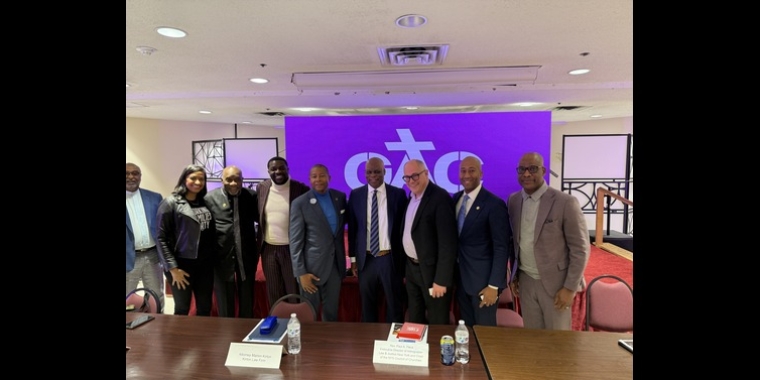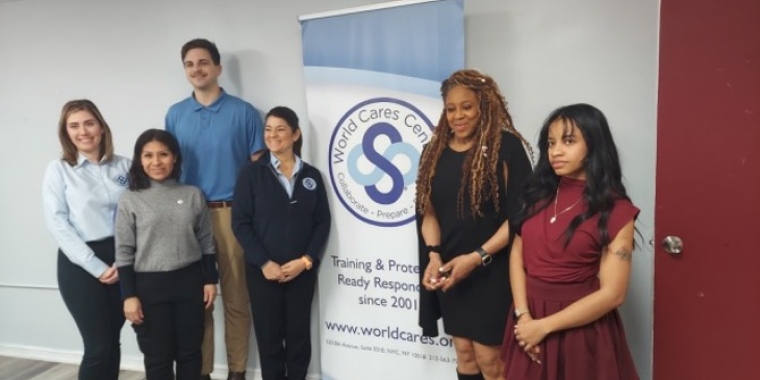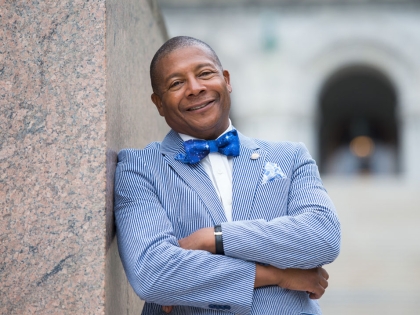
Economic Opportunity Zones Highlighted at Sanders' Community Clergy Breakfast
June 28, 2019
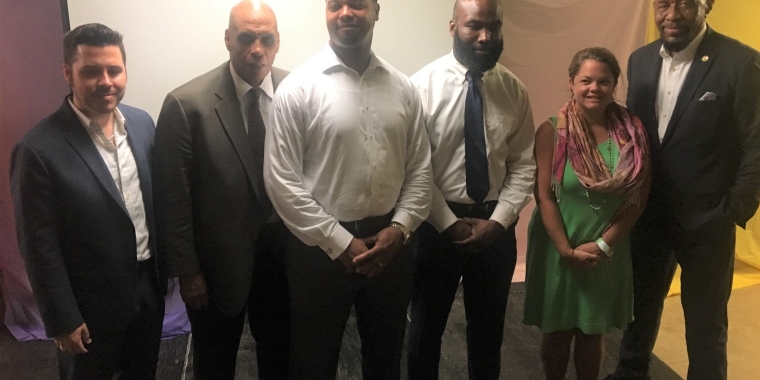
Senator James Sanders Jr. (D-Rochdale Village, Far Rockaway) bought together faith-based leaders and economic industry experts at his Community Clergy Breakfast this month on June 27, 2019 to discuss the social impact of Economic Opportunity Zones and how kingdom builders can organize and direct the community's agenda in relation to potential development.
“As the Africans say the best time to plant a tree is 20 years ago and the second best time is now,” Sanders said. “Now is the best time for all of us to come together and decide where we want these investments to go and how we want to build our community.”
Sanders held the breakfast at the Friendship Baptist Church in Jamaica. It was conducted in partnership with the New York State Economic Development Council, Small Business Development Center at York College, Enterprise Community Partners Inc. & Miles & Stockbridge P.C.
Economic Opportunity Zones is a tax incentive program that is projected to draw over $6.1 trillion in unrealized capital gains nationally. An opportunity zone is a low-income census tract with a poverty rate of at least 20 percent and family income no greater than 80 percent of the area median. This initiative will allow investors to put money to work rebuilding the low to moderate-income communities, according to Ryan Sylva, the Executive Director for
New York State Economic Development Council (NYSEDC).
“States were tasked with recommending EOZs comprising population census tracts that are considered low-income communities” Sylva said. “Investment must occur before the end of this calendar year to maximize program benefits.”
Silva also suggest that communities use a“four prong strategy” of engaging the public sector, private sector, nonprofit organizations and academic institutions in organizing thoughts on what type of development would be ideal in a particular opportunity zone.
Although most of the discussed EOZ development has been on real estate, there are some investors interested in opportunity zone businesses.
Harry Wells, Regional Director of the Small Business Development Center at York College/CUNY and Demond Wilkerson, Asset Management Consultant for SBDC highlighted the importance of leveraging the local institutions to build business capacity while planning for sustainability.
“Our SBDC center has done $30M in loans to businesses in Southeast Queens,” Wells said.
Wells also mentioned the potential for the community to do business with JFK airport who’s surrounding areas are designated as an opportunity zone.
Wilkerson encouraged the faith-based community to specifically focus on three key elements to maximize funding opportunities, “education, planning and implementation.”
Enterprise Community Partners and Kingdom Faith Developers highlighted their work in providing support to faith-based organizations who seek to repurpose their land for affordable housing development.
“It is no secret that the faith based community owns a lot of land,” said Victoria Rowe-Barreca, Director of Capital Solutions and Partners for Enterprise Community Partners.
Enterprise provides technical assistance and grants to faith-based organizations interested in the development of affordable housing and supports nonprofits and mission-driven developers to create safe, high-quality affordable housing. Nationally, Enterprise is committed to working with policymakers and investors to maximize the potential for Opportunity Zones and support low income communities and their needs through an equitable and socially-minded approach.
Faith-based organizations in New York have long served as anchor institutions in their communities, providing critical social services for communities in need, according to Reverend Kermitt l. Williams, CEO of Kingdom Faith Developers.
“The goal of our faith-based development initiative is to build the capacity of our faith-based partners and accelerate affordable housing production by providing technical assistance from experts and professionals involved in development, finance and legal matters,” Williams said.
Venroy July, a Partner at Miles & Stockbridge P.C.,published an article “Making Opportunity Zones Work For Black Communities” where he urges the black community to take collective action to address systemic barriers to advance the community’s agenda.
“So much of the black experience in America has been about the organizations that connect our community, such as churches, black fraternities and sororities and service clubs,” July said. “These groups have played crucial roles in various social movements throughout our history.”
We would like to thank Friendship Baptist Church for allowing us to use their fellowship hall to host this month’s breakfast.
